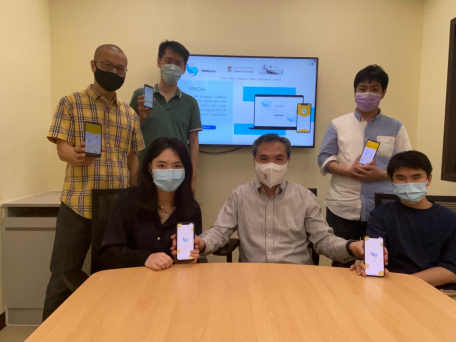HKU launches new Data Science and Engineering minor programme to nurture future IT talents in big data
The Faculty of Engineering of the University of Hong Kong (HKU) will launch a new minor programme “Data Science and Engineering” in the 2021/22 academic year for students pursuing the Bachelor of Engineering (BENG).
Data Science seeks to integrate technologies from interdisciplinary fields in order to promote social development through artificial intelligence and big data.
The minor programme covers professional knowledge of data science such as statistics, machine learning, graph recognition and data acquisition. Students will learn how to collect and interpret data, and develop programmes to process data. They will also have the opportunity to participate in data science engineering projects.
Professor Reynold Cheng, Programme Director of the Minor in Data Science and Engineering, said: “The application of data science is becoming more popular. In the fields of social services, government, healthcare, traffic management and international development, much greater emphasis is now put on data analysis and application. Through data collection and management, data science adopts artificial intelligence for analysis to come up with important insights to help formulate suitable solutions.”
Professor Reynold Cheng believes that the demand for engineers with knowledge in data science will grow tremendously as more engineering problems require solutions using data science. His research team from the Department of Computer Science earlier made use of big data to develop the HINCare system and a mobile application “Time Bank”.
The mobile app adopts artificial intelligence to provide volunteer matching services for elderly people in need. It greatly reduces the workload of social welfare organisations and allows more elderly people to receive support in a timely manner.
Applying the algorithms for data integration and analysis of the HINCare system, the “Time Bank” app efficiently records information of elderly people and volunteers, such as habits, health conditions, residential addresses and other big data. It also calculates and records information of voluntary services automatically, which enhances the accuracy of matching and reduces clerical work such as manual input and calculation.
Another feature of the “Time Bank” app is to promote mutual help among elderly people. Through participating in volunteering services, elderly people can earn and save time credits in exchange for services later such as escorts, household repairs and groceries delivery etc.
“HINCare uses big data to provide technical support for elderly people, volunteers and social welfare organisations. Using artificial intelligence, it matches suitable volunteers for elderly people in need to alleviate the shortage of human resources in social welfare organisations, and provides more effective and efficient elderly services.” Professor Cheng added.
Engineering students taking Data Science and Engineering as minor will have the opportunity to join Professor Cheng’s HINCare team, and assist in the optimisation of the data calculation system, which allows them to learn from practical experiences and apply data science to different aspects.

